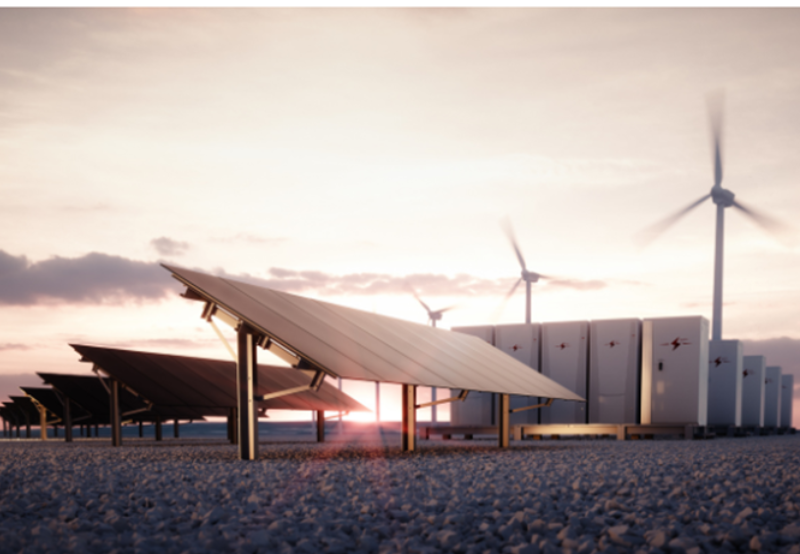By utilising its abundant natural resource base, Madhya Pradesh intends to become a significant hub for the production of renewable energy as India works to become a major player in the clean energy sector.
The state will host the Madhya Pradesh Global Investors Summit 2023 on January 11 in order to explore opportunities and take advantage of those that already exist. It is a premier investment promotion event for the state of Madhya Pradesh with renewable energy as its focus. Industry leaders, subject matter experts, and government representatives will participate in the session to discuss the future of renewable energy and look into investment opportunities in the state.
Clean energy, also referred to as renewable energy, is typically created using renewable natural resources. Governments in both developing and developed countries are encouraging the production of renewable energy due to innovations in methods of capturing wind and solar energy, decreased pollution, and low maintenance costs.
By 2030, with a CAGR of 8.4%, the market for renewable energy is expected to reach $1977.6 billion. Renewable energy sources provide 7% of the world's energy requirements.
Due to rising demand, the Asia-Pacific region makes up a large portion of the global market. India wants to eliminate all greenhouse gas (GHG) emissions by the year 2070 and increase its non-fossil power capacity to 500 GW by the year 2030.
With 147 GW of installed capacity, India is the third-largest consumer of electricity in the world and the third-largest producer of renewable energy, with 160 GW of its 400 GW installed energy capacity expected to come from renewable sources by 2022.
Investors now find the sector more alluring thanks to the government's increased support and the strengthening of the economy.
India's efforts to meet its own energy needs, which are projected to total 15,820 TWh by 2040, will depend heavily on renewable energy.
With its abundance of natural resources, Madhya Pradesh offers a wealth of opportunities for the production of renewable energy. The State's topography and climate are favourable for the development of wind and solar power. The State has the potential for 820 MW of small hydro, 11 GW of wind, 61 GW of solar, and 11 GW of biomass energy, according to the Ministry of New & Renewable Energy. The State is in a good position to encourage the growth of renewable energy. The State of MP is among the best in the nation for the construction of solar power plants because it receives one of the highest levels of solar radiation.
One of the state's main advantages in terms of natural resources for setting renewable energy resources is the fact that large rivers like the Tawa, Narmada, Chambal, and Tapti flow through it, providing significant hydro potential. It has a solar potential of up to 6.2 KWh/sq.m./day and receives a lot of sunlight. In MP, there is a gross wind potential of almost 3000 MW.
The majority of the state's districts provide the option of using biomass, which has an estimated 1400 MW of theoretical capacity. In order to fully utilise the state's potential for renewable energy, the state government launched a technology-compatible renewable energy policy, making it the first state to do so.
The state government's Industrial Promotion Policy, which offers lucrative incentives to companies that produce renewable energy along with tailored packages for mega industries, has incentives specifically designated for the renewable energy sector. The state provides land at discounted rates, a waiver of wheeling fees, an exemption from the electricity duty and energy development Cess, and incentives for the production of RE equipment as part of its incentive policy.
Madhya Pradesh has a lofty ambition to build a solar power plant in the Chambal region and provide neighbouring states with 20,000 Megawatts (MW) of green electricity from renewable sources by 2030. Currently, the state produces 5,500 MW of green energy from a variety of renewable energy sources, with solar energy accounting for the majority of this output.
In a first of its kind, Indian Railways has installed a 1.7 MW solar power project in Bina, Madhya Pradesh, in collaboration with Bharat Heavy Electricals Limited (BHEL), where solar electricity will be directly fed into railway engines.
A component of the Green Energy Corridor is Madhya Pradesh. Its potential for renewable energy across all sources is roughly 30 GW. To realise this potential, the state has actively encouraged private investment in project development by promoting "Ease of Doing Business" in the state, adopting supportive laws and regulations, and enlisting the aid of the state's power utilities and other state agencies.
Mahindra Sustainable, Spring Energy, Athena, ACME Solar, Avaada, Greenko, O2 Power Private Limited, NTPC Limited, Solar Arise, Tata Power, Inox Wind, and Kshema Power and Infrastructure Company Pvt Ltd. are significant players in the state.
According to the World Bank and the Department for Promotion of Industry and Internal Trade (DPIIT), Madhya Pradesh has been classified as a "Achievers" state in the EODB. The state government has launched several initiatives to implement key reforms, such as start your business in 30 days' for the benefit of industries, and is also promoting renewable energy in the state.
Madhya Pradesh has become an attractive investment hub for major domestic and global players due to its investor-friendly policy, transparency, and conducive business environment.
See also:
Odisha’s new policy to boost use of renewable energy
UP to generate 22,000 MW solar power over five years






















